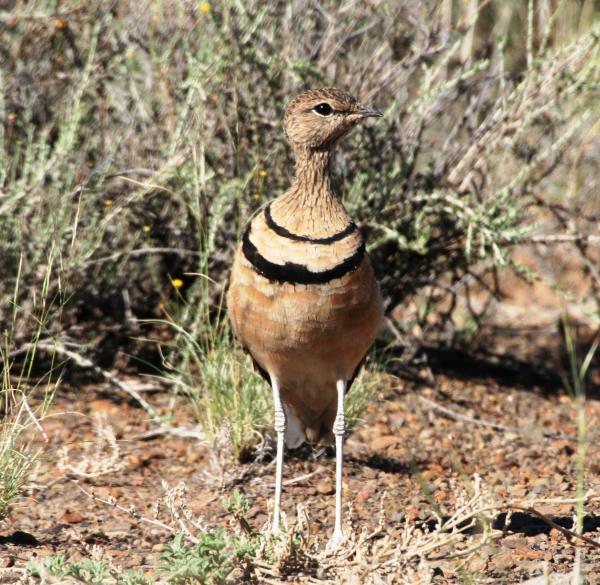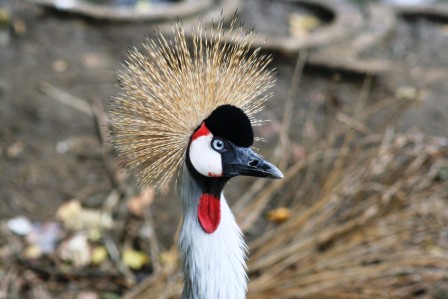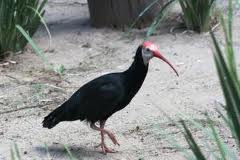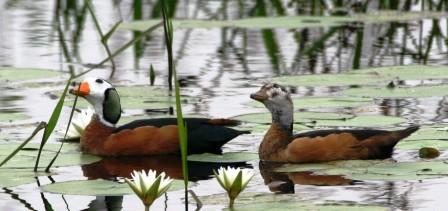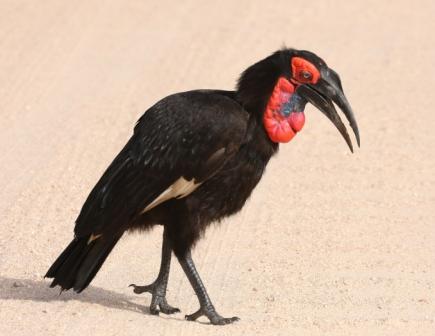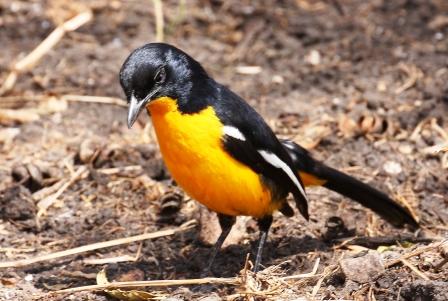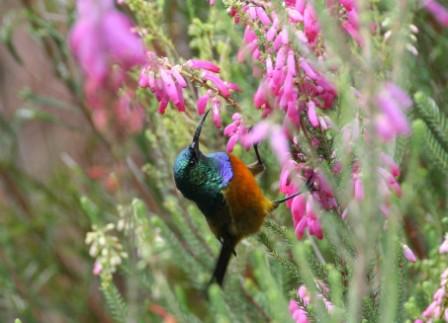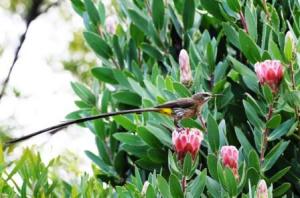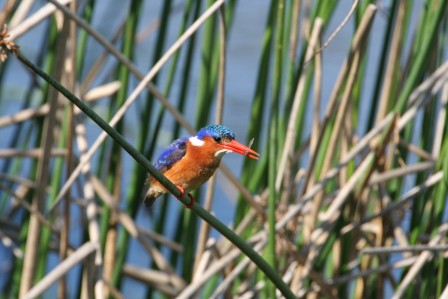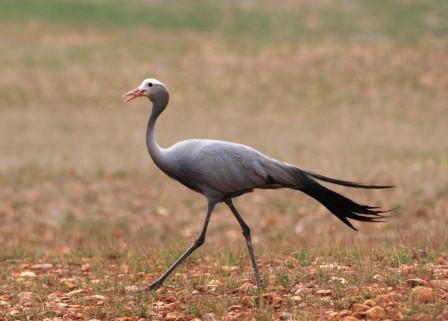Recent
mortalities and nest failures have again highlighted the plight of the African Grass Owl - Tyto capensis - and other grassland
species that are often encountered within the urban areas of Gauteng. The African Grass Owl is currently
listed as Vulnerable in The Red Data Book of Birds of South Africa, Lesotho and Swaziland
and has suffered considerable loss of habitat due to rapid urbanisation and
disturbance within its range in South
Africa.
By far the biggest threat to these birds is the loss of habitat due to urban,
industrial and agricultural development. This species is particularly
vulnerable due to the fact that it nests and roosts in dense patches of grass
on the ground, often in close proximity to wetlands. Nests are therefore prone
to predation by a range of predators and are also susceptible to trampling by
grazing animals and indiscriminate or poorly timed burning practices. Other
threats that these birds face include deaths from speeding motor vehicles at
night or birds becoming entangled in barbed wire fences.
Burning the veld at the wrong time of the year can lead to the failure of many
nests of ground-nesting birds and the African Grass Owl is particularly susceptible
to this. Similarly, the over-grazing and trampling of areas suitable for these
birds to roost and breed in can lead to low reproductive success and
abandonment of territories. Disturbance by people at known sites where these
birds occur can also have a negative impact if such areas are abandoned by the
birds or breeding success is compromised.
A recent example of the potential effect of these factors is the failure of an
African Grass Owl nest on private property on the East
Rand. “The landowners were forced to intervene due to the nest
containing three chicks being threatened by a veld fire which originated on an
adjacent property and quickly spread to within close proximity of the nest
site,” said Matt Pretorius, the coordinator of the Anglo-Coal Grass Owl Project
which was established by the Endangered Wildlife Trust’s Birds of Prey
Programme (EWT-BoPP) and is also supported by the Mazda Wildlife Fund.
“Although the chicks were saved and returned to the same nest sometime after
the fire was successfully extinguished, the disturbance and subsequent frequent
visits to the nest by a number of people to ensure that the chicks were safe
was enough of a disturbance for the parents to abandon the breeding attempt
altogether. This ultimately resulted in the death of two of the chicks and the
other requiring treatment at a rehabilitation centre.”
The Grass Owl Task Force, which is a stakeholder group of individuals and
organisations involved in the monitoring and conservation of the species
overseen by the EWT-BoPP, would therefore like to urge landowners and members
of the general public to please assist in the conservation of this species
through the application of responsible veld management and burning practices
within the species’ range. Fires that could threaten wetland areas in
particular should be prevented or extinguished if it is not done as part of an
approved burning programme. Mortalities from road-kills can also be prevented
by drivers reducing speed and dimming the headlights of their vehicles when an
owl is seen sitting in the road.
The African Grass Owl is a notoriously difficult bird to locate and as such it
is very sought-after by birdwatchers. Birders are urged to please refrain from
walking through known breeding habitat in order to flush the birds and do not
use call-playback to lure owls closer as they are very sensitive to
disturbance, as highlighted in the case above.
For more information on the EWT–Birds of Prey Programme (EWT-BOPP) and its
Grass Owl Task Force contact Matt Pretorius at 072 507 7664 and mattp@ewt.org.za or André
Botha at 082 962 5725 and andreb@ewt.org.za
African Grass Owl
The African
Grass Owl - Tyto capensis - is found in Central, Eastern and
Southern Africa. It is locally common in north-central Zimbabwe, western
Mozambique, Swaziland and east-central South Africa. It generally prefers
marshes and vleis with patches of tall rank grass, weeds or sedges.
Description
The upperparts
are dark brown with pale spots, with buff bars in the wings, which can appear
bluish-grey in flight. The
underparts are creamy white to pale buff with some brown spots. The facial disc
is white and may have pale buff marking. There is a brown mark in front of each
small brown eye, with the edge of disc dark brown on top but buff on sides and
bottom. The legs long, with feathering on the lower parts reduced to a few
bristles. The feet are
greyish and the Bill is light brown. The female is larger than the male. They differ
in appearance from their cousins the Barn Owl in being larger, with stronger
contrast between the upper and lower body. The face is also rounder than the
Barn Owl.
Call
The call is
described as a hissing scream, fairly similar to the scream/screech of the Barn
Owl.
Food
Mainly eats
rodents, foraging nocturnally by flying low over the ground. It also will eat
Frogs, Birds, Termites and Beetles.
Breeding
The nest is an
unlined depression in the ground placed among rank grass. The breeding season
is November to July with the female laying between 2 to 6 eggs which she
incubates for about 32 days. The chicks learn to fly from 49 to 55 days.
Conservation Status – Vulnerable
It is considered
Vulnerable in South Africa, with between 1 000 and 5 000 birds remaining in
this country. The combined pressure from development; fire mismanagement; land clearing
for agriculture; overgrazing; afforestation and road kill are of serious
concern for the species.
Birdwatching
Ask Aves Birding Tours/Safaris/Adventures
to create an Aves custom tour for
you or book on one of the following Aves
Birding Tours/Safaris/Adventures: -
Aves
Eastern Cape Birding Tour/Safari/Adventure.
Aves Highlands /
Temba Birding Tour / Safari / Adventure.
Aves KZN Birding
Tour / Safari / Adventure.
Aves North East
Birding Tour / Safari / Adventure.
Aves North West
Birding Tour/Safari/Adventure.




